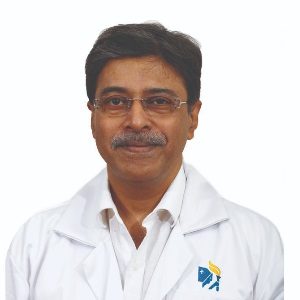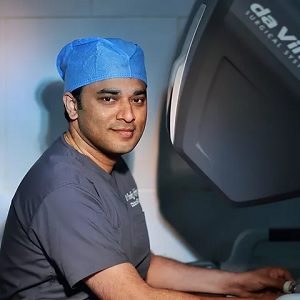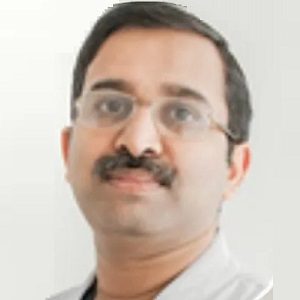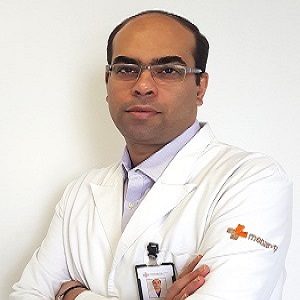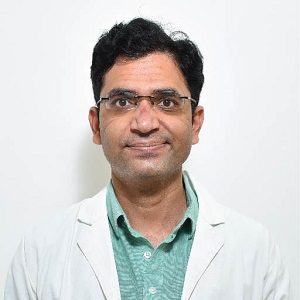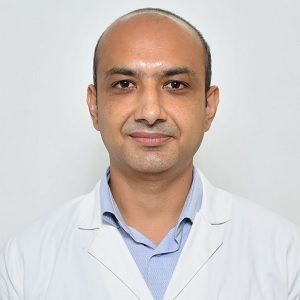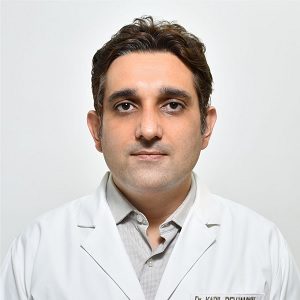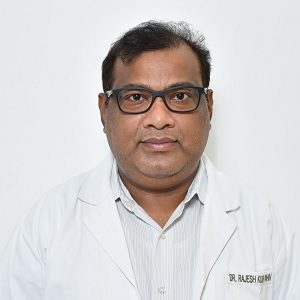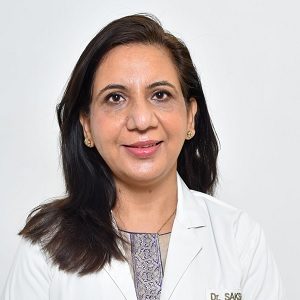Best Doctors in India for Virtual Colonoscopy
- Liver Transplant Surgeon and HPB Surgeon, Chennai, India
- Over 15 years’ experience
Profile Highlights:
- Dr. Selvakumar Naganathan is one of the best liver transplant surgeons in India with nearly 15 years of experience.
- He has carried out more than 2000 procedures, including 300 donor & 500 recipient hepatectomies, cadaver transplantations, retrieval of cadaver livers, and live donor liver transplants.
- He also established many liver transplantation centers across India & other countries.
- General Surgeon and Surgical Gastroenterologist, Chennai, India
- Over 27 years’ experience
Profile Highlights:
- Dr. Raghunath K J is a well-known name in the field of general surgery with an experience of more than 27 years.
- He went under training in advanced Laparoscopic surgery from Canada and France.
- Dr. Raghunath pioneers many prestigious projects in the UK.
- Dr. Raghunath has a specialized interest in Gall Bladder Stone treatment, Hernia, GI Cancer Surgery, Laparoscopic Sleeve Resection, Endoscopic Surgery, etc.
- Colorectal Surgeon and Robotic Surgeon, Chennai, India
- Over 26 years’ experience
Profile Highlights:
- Dr. Venkatesh Munikrishnan is one of the best Gastroenterologists and Colorectal Surgeons in Chennai, having 21 years of experience in managing disorders that need surgical treatment.
- Dr. Munikrishnan specializes in surgical oncology, endoscopy, Gastritis Treatment, etc.
- He is also active in research; one of his research on CT Colonography fetched a grant from Bracco, Milan, Italy.
- GI Surgeon and Liver Transplant Surgeon, Gurugram, India
- Over 20 years’ experience
Profile Highlights:
- Dr. Amit Nath Rastogi is a pioneer in the field of liver transplant surgery. He completed his fellowship in liver transplant surgery at Sir Gangaram hospital while being a part of the largest liver transplant program in the country.
- Furthermore, he received his training in robotic liver surgery from IRCAD -Strasbourg, France, and advanced robotic HPB training from Grosseto.
- Liver Transplant Surgeon, Gurugram, India
- Over 10 years’ experience
Profile Highlights:
- Dr. Prashant Vilas Bhangui is one of the highly trained liver transplant specialists who received his training in Surgical Gastroenterology and Liver Transplantation.
- He also holds a European Inter-University Diploma in Hepato-Biliary-Pancreatic Cancers.
- Dr. Prashant is further interested to work in certain fields which include hepatocellular carcinoma, colorectal liver metastases, and living donor liver transplantation. Besides this, he has also published several journals on these subjects.
- Gastroenterologist, Gurugram, India
- Over 7 years’ experience
Profile Highlights:
- Dr. Abhinandan Mishra is one of the young Gastroenterology doctors in Gurugram who is particularly interested in inflammatory bowel disease treatment.
- Dr. Abhinandan Mishra offers Endoscopic Retrograde Cholangiopancreatography, Ascites tap, Endoscopy, Peroral Endoscopic Myotomy, Capsule Endoscopy, Esophageal Manometry, Magnetic Resonance Cholangiopancreatography, etc.
- Gastroenterologist, Gurugram, India
- Over 18 years’ experience
Profile Highlights:
- Dr. Atul Sharma is a renowned Gastroenterology practitioner in Gurugram and is particularly interested in Third Space Endoscopy and Per Oral Endoscopic Myotomy (POEM).
- He presented several papers on Manometry, Luminal gastroenterology, and interventional Gastroenterology during training in Advanced Interventional GI Endoscopy.
- Gastroenterologist, Gurugram, India
- Over 15 years’ experience
Profile Highlights:
- Dr. Kapil Jamwal is a renowned GI practitioner in Gurugram with an extensive experience in digestive and liver disease.
- The specialist offers treatment for Hepatitis B, Jaundice, Hepatitis C, Inflammatory Bowel Syndrome, Acute Pancreatitis, Liver Diseases, and Irritable Bowel Syndrome.
- Gastroenterologist, Gurugram, India
- Over 18 years’ experience
Profile Highlights:
- Dr. Rajesh Padhan is a renowned Gastroenterologist in Gurugram with an extensive experience of more than 18 years in the field.
- He is skilled in carrying out various endoscopy procedures such as Colonoscopy, Endoscopic retrograde cholangiopancreatography, Endoscopic ultrasound, upper GI endoscopy, etc.
- Gastroenterologist, Hepatologist, Gurugram, India
- Over 25 years’ experience
Profile Highlights:
- Dr. Sakshi Karkra is one of the best Pediatric gastroenterologists in Gurugram.
- She has special interest/ expertise in Colonoscopy, Upper GI Endoscopy, Capsule endoscopy, Enteroscopy, Endoscopic variceal ligation, Foreign body removal, Stricture & achalasia dilatation, Polypectomy, Anal manometry, Liver Biopsy, and Colonic manometry.
Best Hospitals in India for Virtual Colonoscopy
Virtual Colonoscopy
Virtual Colonoscopy also termed as CT colonography, is a procedure which is done to look for small polyps or other growths inside the colon. Polyps that develop on the inside lining of the colon can lead to colon cancer.
Generally, it is advised that people of both genders begin screening for colon cancer from the age of 50. You might be at risk of colon cancer if you have a family history of colon cancer.
Virtual colonoscopy differs from regular colonoscopy in various ways. In a regular colonoscopy, a long and flexible narrow tube is used, which is equipped with a tiny camera and a light on one end. On the other hand, virtual colonoscopy is an X-ray test, which requires lesser time, and doesn’t require your doctor to insert a scope into your colon. However, it is noteworthy that virtual colonoscopy might not be as effective as colonoscopy in finding certain polyps. In most cases, your insurance might not cover it as well.
Purpose
Virtual colonoscopy is preferred to find colon cancer at an early stage when it can be treated more easily. Virtual colonoscopy has a few benefits as compared to regular colonoscopy:
- It is less uncomfortable and invasive. It does not need any pain medicine or anesthesia in most cases.
- The time required is much lesser.
- It might be considered for people who cannot undergo a regular colonoscopy. In some cases, it may be used for people who have problems such as bleeding, swelling or breathing problems.
- It might show areas of the large intestine that regular colonoscopy is unable to reach. This might be the case if part of your intestine is narrowed or blocked.
- It also poses less risk of harming the large intestine.
Preparation
Let your healthcare provider know about any medications that you might be taking. You will also need to have a bowel prep before the procedure. A bowel prep helps you empty the colon so that the CT images are going to be clear. Here is how the bowel prep is generally done:
- Your healthcare provider will most likely ask you to limit your diet to clear liquids for a few days before the procedure. This can include water, clear broth, or an electrolyte solution.
- The day before your procedure, you will receive a strong laxative in pill or liquid form. This will be helping help you empty your colon. You will likely have multiple loose or liquid bowel movements in the next hours.
- Just before the procedure is performed you may also receive a type of liquid to drink, which is termed as contrast media. This can help the inside of your colon to clearly show up for the X-rays.
Procedure
The procedure is performed at an outpatient center or at a hospital. Anesthesia is not required. It is performed by a specially trained X-ray technician.
For the procedure, first you lie on the table, while the technician will insert a thin tube through your anus and into the rectum. The tube then inflates your large intestine with air for a better view.
Next, the table slides into a tunnel-shaped device where the technician takes the X-ray images. You might be asked to hold your breath multiple times throughout the procedure. You will need to turn over on your side or stomach so that he/she can take different images of the large intestine.
The procedure generally takes around 10 to 15 minutes.
After the procedure
After the procedure, for around one hour, you might feel cramping or bloating. You will likely be able to resume your daily routine right after the test. You can also return to a normal diet.
Generally, after the test, a radiologist looks at the images to see if he/she can find any problems. Then a report is sent to your doctor.
Risks
Like most procedures, virtual colonoscopy comes with some risks and possible complications. These can include the following:
- A small, short tube is placed into the anus to pump air into your colon. This inflates your colon so that polyps or other growths can be seen more easily. Though pumping air into the colon carries a very small risk, in rare cases it may cause a tear (rupture). The risk is considered to be less than with regular colonoscopy.
- Your doctor or technician can’t remove polyps or other growths with a virtual colonoscopy. If polyps or any other growths are found, you will be needing a regular colonoscopy.
- This procedure can miss some polyps if they are smaller than 10 mm. though some of these might be seen with a regular colonoscopy.
- Unlike most other screening tests, this test uses X-rays for creating pictures of your colon and your rectum. Though the amount of radiation is small, it can raise your risk of cancer slightly. This procedure therefore can be dangerous for pregnant women.
Depending on your health conditions, sometimes you might have other risks. Therefore it is best to discuss with your health professional about all risks and possible complications before you undergo the test.


